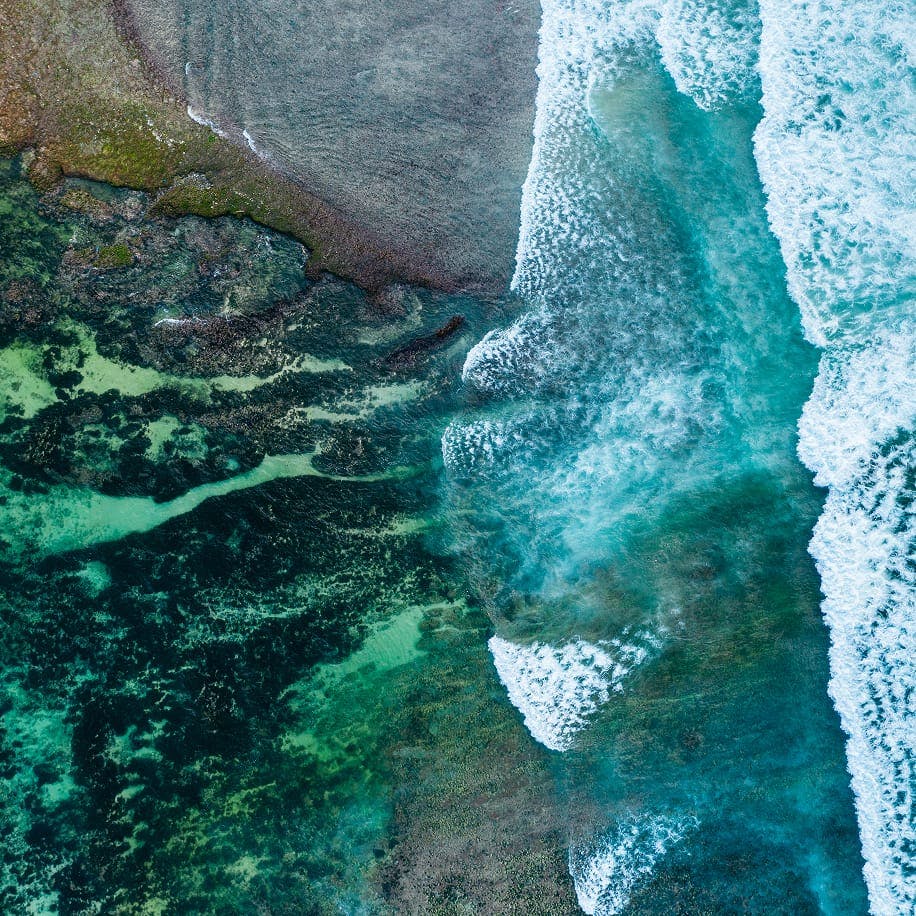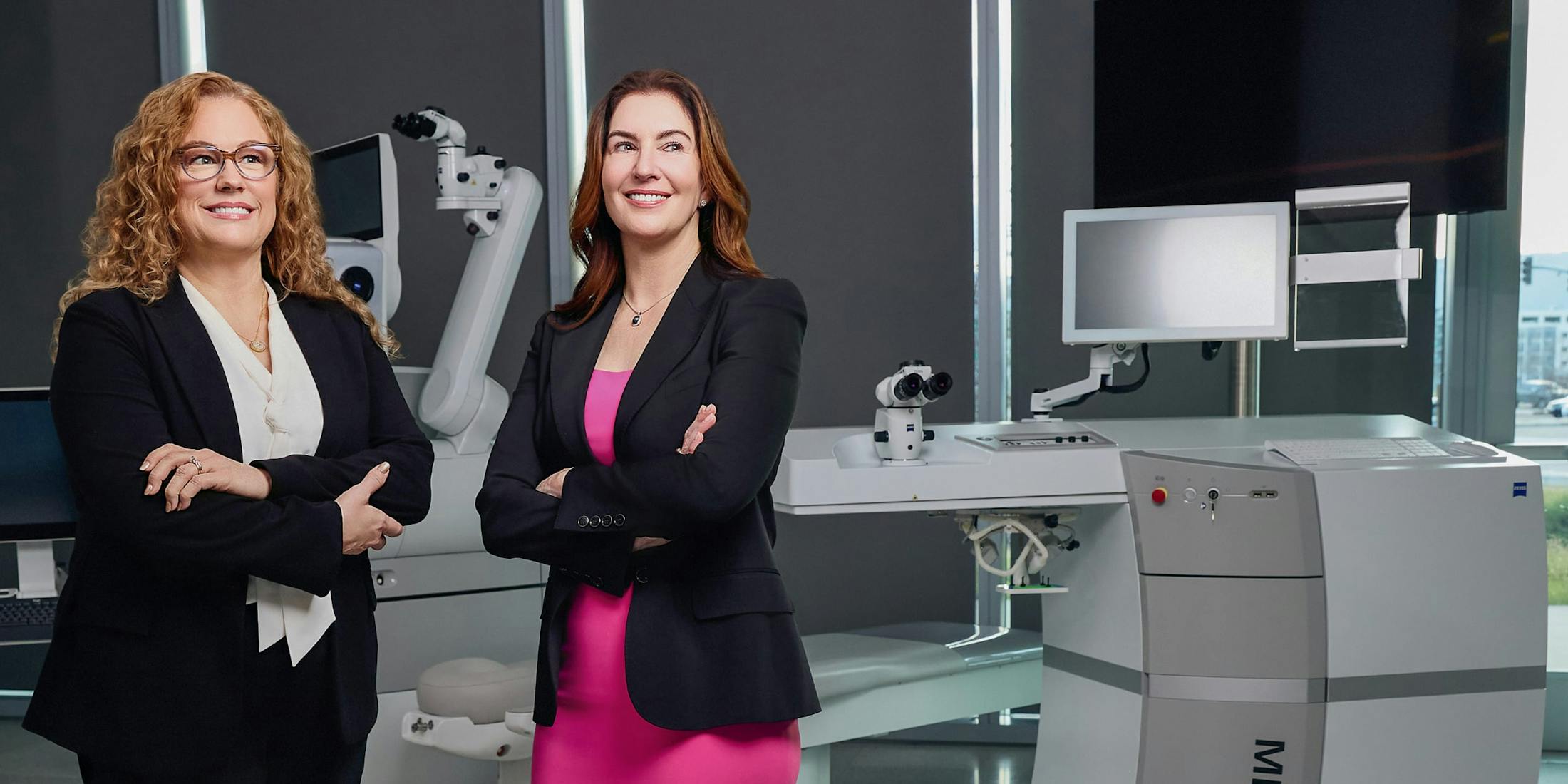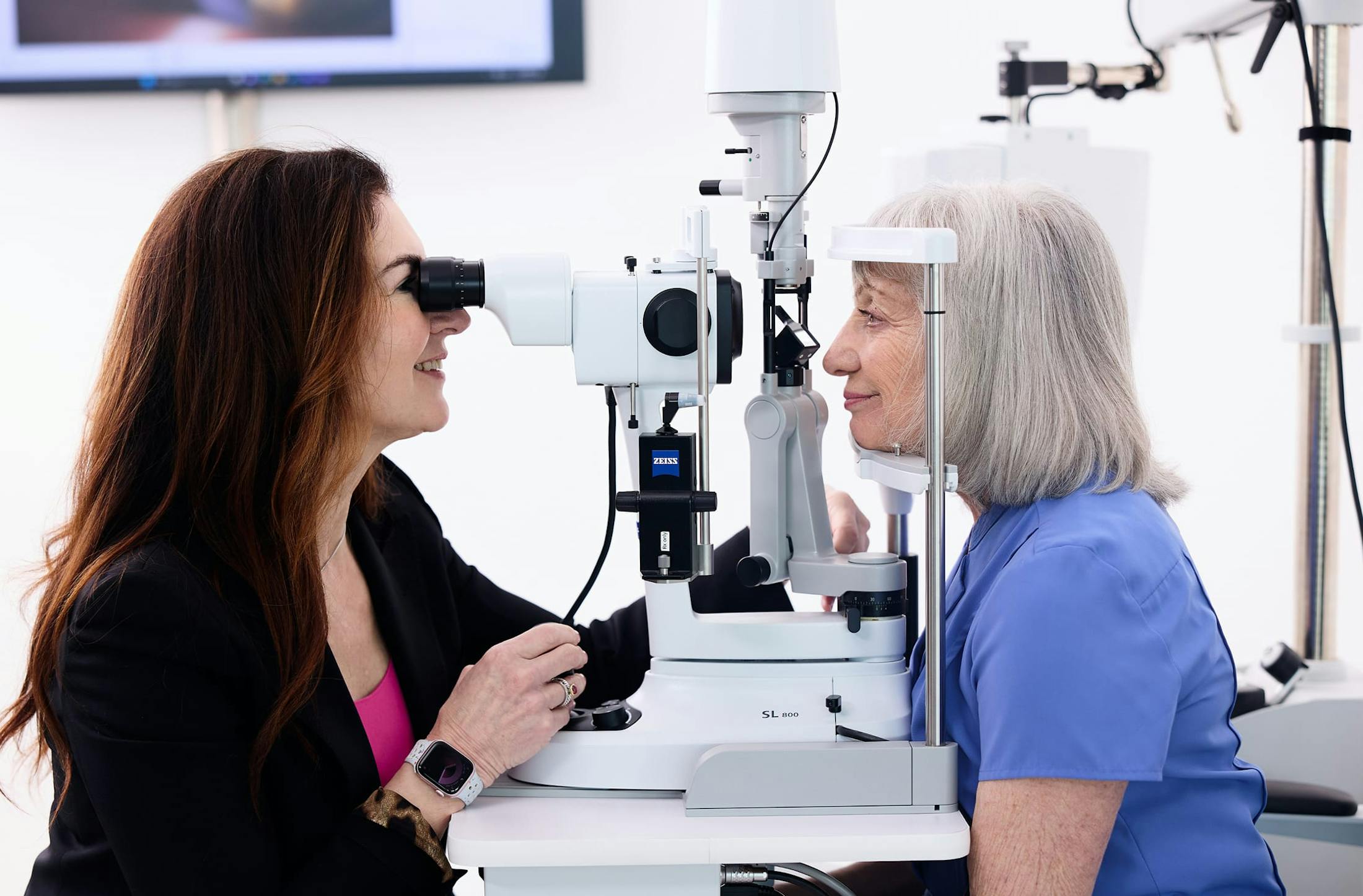Achieve sharp, lasting vision with PRK, an advanced laser eye surgery designed for those patients with minimal prescriptions or needing enhancements after prior refractive surgery procedures.
The Benefits of PRK
- Sharp, Long-Lasting Vision: PRK delivers exceptional clarity without the need for glasses or contacts.
- Better for Thin Corneas: PRK is a great alternative for patients who aren’t SMILE or LASIK candidates due to thin or irregular corneas, or those patients needing enhancements with minimal prescriptions who had previous refractive surgery.
- Reduced Risk of Flap-Related Complications: With no corneal flap, there’s no risk of flap dislocation or complications, ensuring greater long-term stability.
- Permanent Vision Correction: Once healed, PRK results last a lifetime and offer the same high-quality correction as SMILE and LASIK.
- Custom-Tailored Laser Treatment: PRK is performed with highly advanced excimer laser technology, ensuring precise, personalized vision correction.












